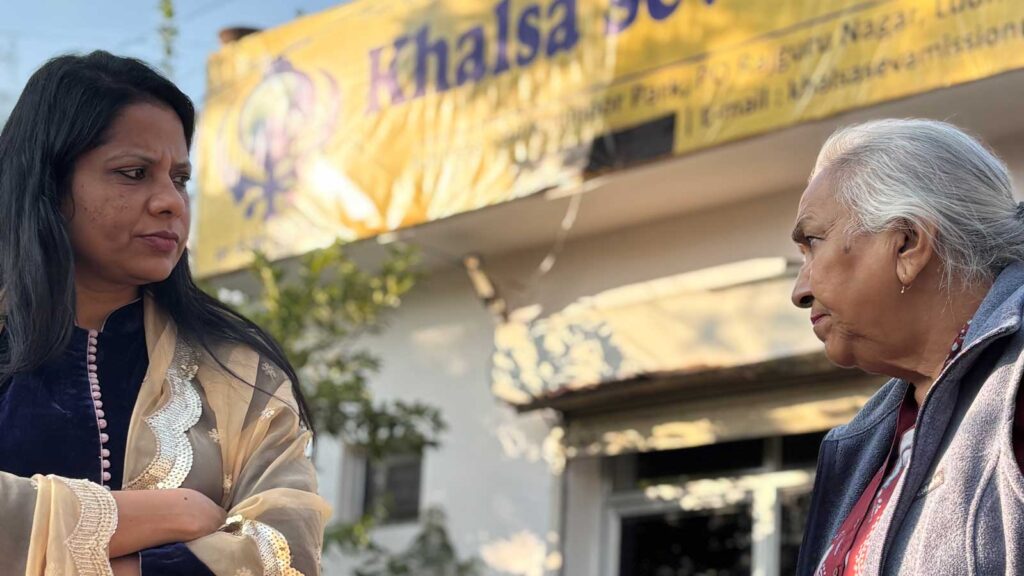John-Michael McCaskill shares an update on his fieldwork project addressing waterborne diseases, sanitation, and public health.

John-Michael McCaskill, a student in the Master of Science in Global Health program at the National University of Natural Medicine (NUNM), is currently completing his fieldwork in India. His journey has been one of discovery, resilience, and collaboration, reflecting the unpredictable yet rewarding nature of global health work.
In his own words, McCaskill shares how his background as an entrepreneur led him to pursue public health, the challenges and insights he has encountered in India, and the transformative impact of applying his education in real-world settings:
Greetings from India! Now, into my fifth week of this global health experience, I find it to be both enchanting and wonderfully unpredictable. When I arrived, my host remarked, “You don’t plan for India; India plans for you.” It perfectly captures the essence of one of the largest diasporas in the world.
Starting a journey of discovery is not straightforward; it involves overcoming challenges, adapting, and experiencing revelations. As I pen this, I approach the midpoint of my fieldwork project, the Waterborne Disease Awareness and Education (WDAE) Pilot Program in Ludhiana, India. I wish to recount my story about the journey that brought me here and share my reflections on the fieldwork experience, which emphasized practical, community-centered solutions to public health issues.
Before attending NUNM, I was an entrepreneur with 15 years of experience starting and building businesses. Throughout these opportunities, I faced challenges due to technical gaps and resource limitations within the industry. These obstacles restricted my ability to scale projects and effectively create the desired impact. This realization motivated me to pursue a Master of Science in Global Health at NUNM, where I acquired the tools and mentorship needed to bridge those gaps.
Beginning with one of the first courses in the Global Health program, I recognized that communities affected by low socioeconomic status, housing insecurity, and limited access to health systems shared the common risk of increased waterborne diseases. So, I set out to design a program, raise awareness, and educate people about waterborne diseases. The WDAE Pilot Program represents the culmination of this academic and professional evolution.
The mission of the Waterborne Disease Awareness & Education Pilot Program is to empower communities with the knowledge and tools needed to combat waterborne diseases through education, improved sanitation practices, and sustainable health solutions. Although this sounds like a large project, I’m hopeful that, using participatory methods, I can help build capacity within the community.
At this point in my fieldwork, I have collaborated with a local NGO and other development professionals, who have deepened my understanding of local culture. Ongoing discussions with engineers, farmers, and community leaders reinforce my understanding that any meaningful change requires collaboration but, more importantly, adaptability. Challenges seem to present themselves around every corner and conversation.
“Turning challenges into opportunities” has become my daily mantra, shaping my journey to implement this program. In one example, flight delays allowed me to meet an associate who just happened to be working in Delhi. Over dinner, he offered constructive feedback about my project. He introduced me to a public health advocate from Mexico who also added context to the global nature of water sanitation and security. Unplanned opportunities happen around every corner and with many conversations.
These experiences echo NUNM’s ethos, which fosters resilience, curiosity, and the meaningful application of knowledge. The encouragement from faculty, peers, and mentors has been pivotal in shaping the WDAE program. From coursework that improved my analytical skills to support from colleagues near and far, NUNM consistently offers a network that reaches far beyond the classroom.
As I embark on the second half of the WDAE fieldwork project, I’m doing so with gratitude and humility. Next month, I look forward to sharing about new communities, interactions, and project outcomes. This experience is proving to be more than an academic endeavor; it is powerfully transformative, personally and professionally.